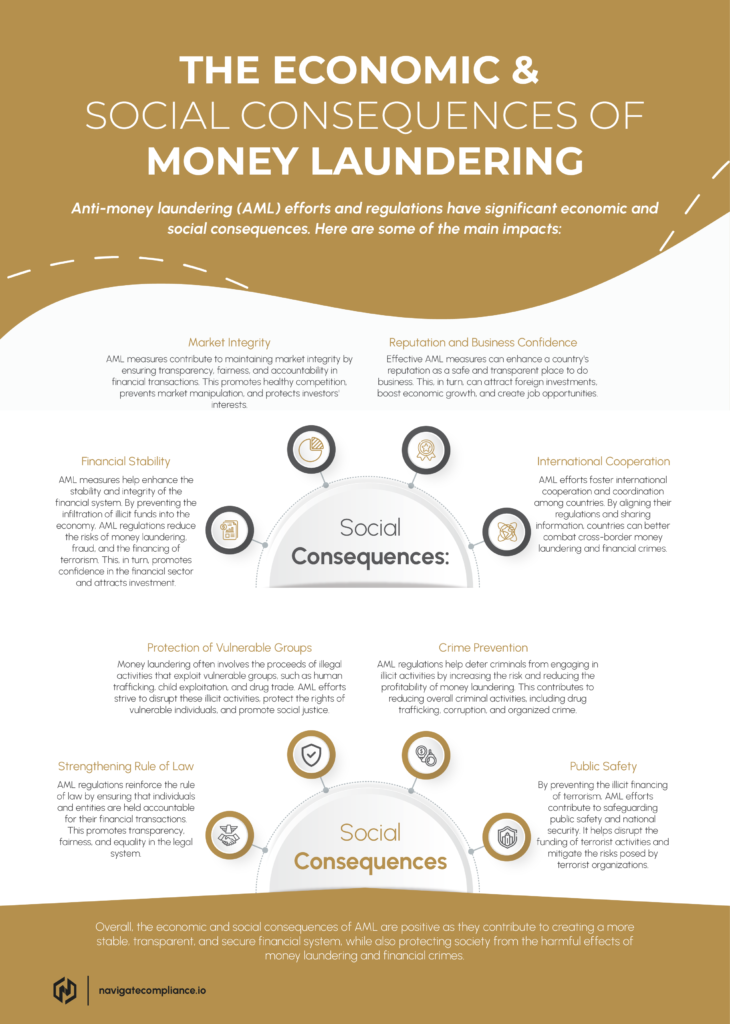Exploring the Economic and Social Consequences of AML
Money laundering is a significant concern for governments, financial institutions, and society as a whole. Anti-Money Laundering (AML) measures have been put in place to combat this illegal activity.
In this blog post, we will explore the economic and social consequences of AML and why it is crucial for countries to address this issue effectively.
Economic Consequences of AML
Damage to Financial Systems: Money laundering undermines the integrity of financial systems by allowing illicit funds to flow through legitimate channels. This can lead to a loss of public trust in financial institutions, impacting their stability and reputation. Moreover, the negative economic impact can extend to decreased foreign direct investment and increased capital flight.
Distorted Markets: Money laundering can distort markets by creating artificial demand and driving up prices of assets such as real estate, luxury goods, and cryptocurrencies. This can hinder fair market competition, making it difficult for ordinary citizens to access and afford these assets.
Reduced Tax Revenue: Money laundering obscures the true origins and destinations of funds, making it challenging for governments to collect accurate tax revenue. This deprives countries of much-needed funds for public services, infrastructure development, and social welfare programs.
Increased Costs for Businesses: Financial institutions are legally obligated to implement stringent AML measures, including customer due diligence and transaction monitoring. These compliance costs can be significant for businesses, especially smaller ones, leading to reduced profitability and potentially limiting economic growth.
Social Consequences of AML
Funding Organized Crime and Terrorism: Money laundering provides criminal organizations and terrorist groups with the financial means to carry out illegal activities. These activities can range from drug trafficking and human trafficking to financing acts of terrorism. AML efforts are crucial in disrupting these activities and safeguarding societies.
Weakening Governance and Rule of Law: Money laundering perpetuates corruption and weakens governance structures. It allows individuals and entities to gain undue influence and power, leading to a breakdown of the rule of law and erosion of democratic values. AML measures help uphold the principles of transparency, accountability, and good governance.
Social Inequality: Money laundering facilitates the concentration of wealth in the hands of a few individuals or entities, perpetuating social inequality. The funds derived from illegal activities often bypass tax systems and contribute to the growing wealth gap within societies.
Undermining Financial Inclusion: Money laundering can negatively impact efforts to promote financial inclusion. By distorting markets and making financial systems less trustworthy, it becomes more challenging for disadvantaged individuals and businesses to access financial services and participate fully in the economy.
In conclusion, the economic and social consequences of money laundering are far-reaching and can have detrimental effects on societies and economies.
Effective AML measures are necessary to combat this illicit activity, preserve the integrity of financial systems, and promote sustainable development. By working together, governments, financial institutions, and individuals can mitigate these consequences and build a safer and more inclusive world.




